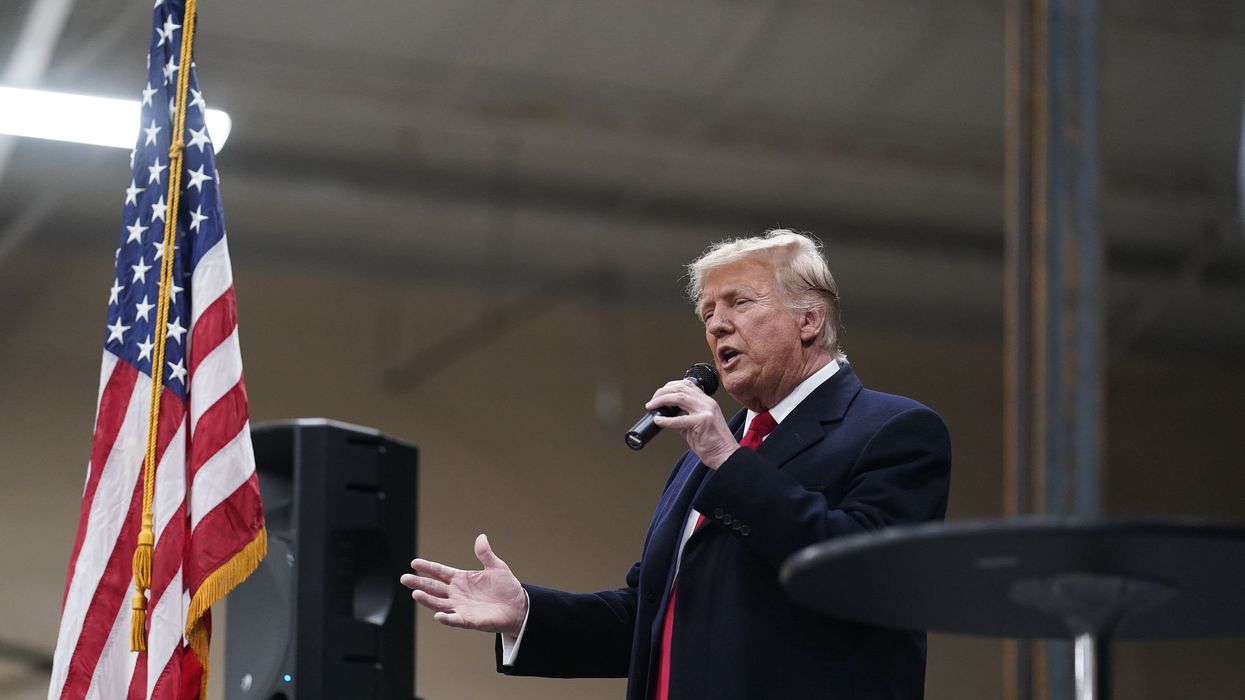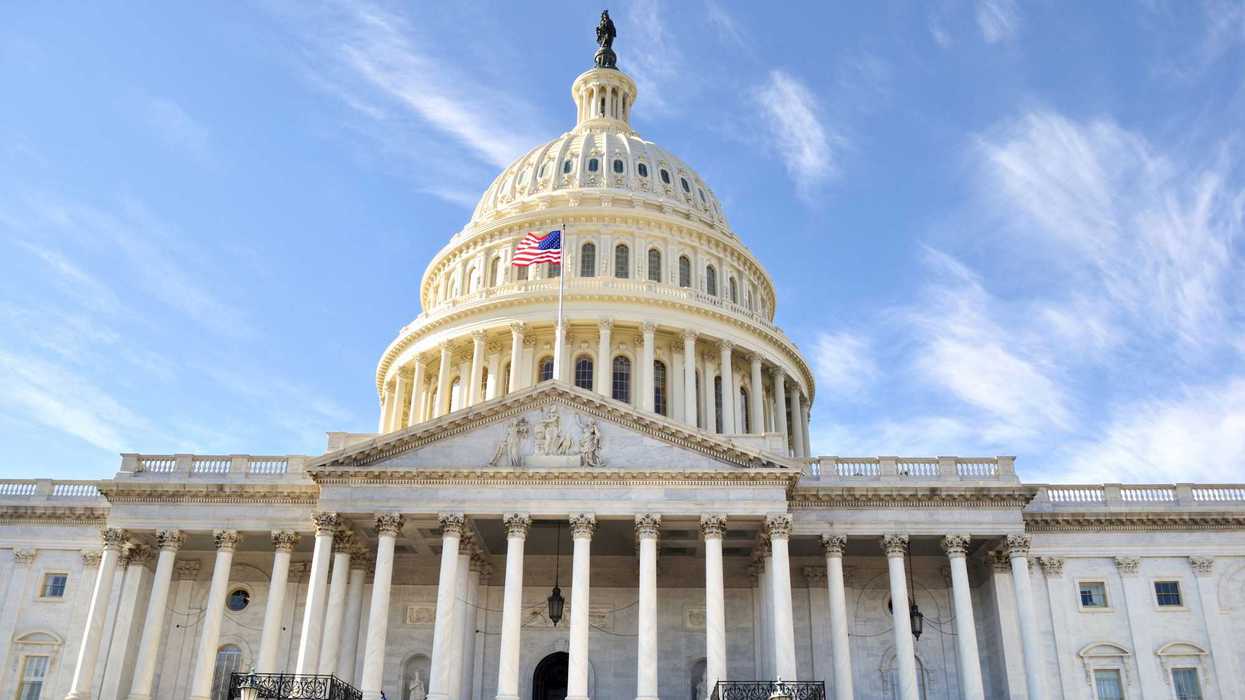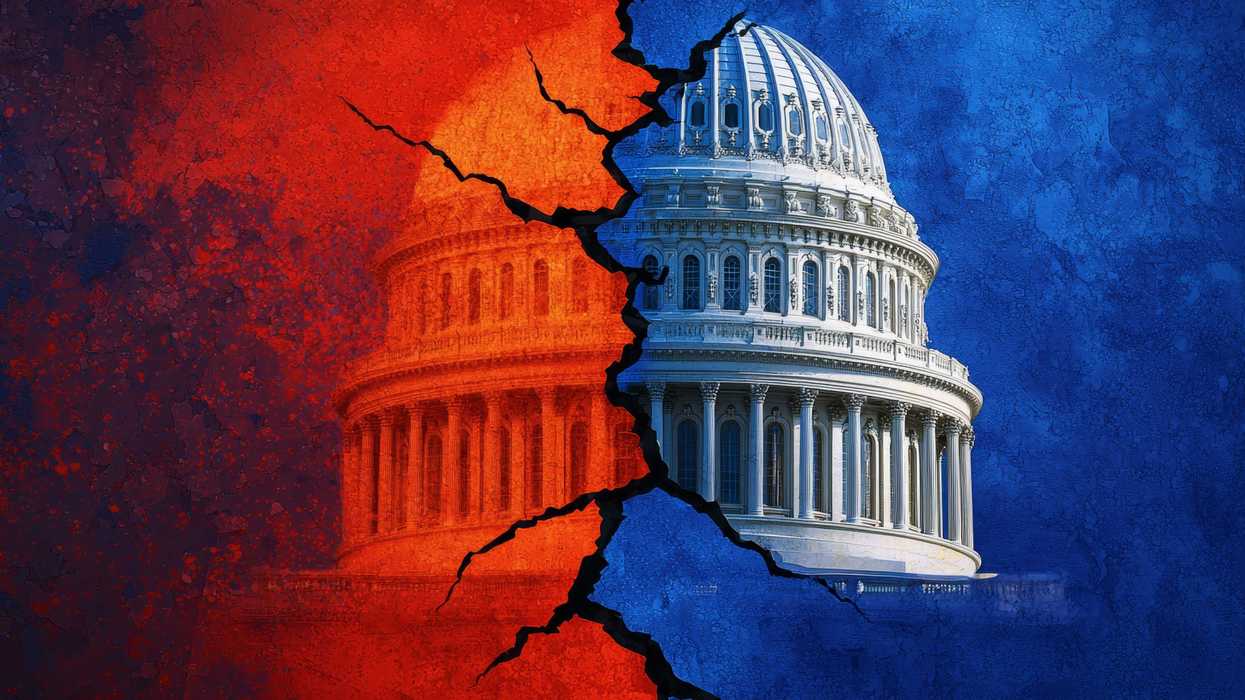LaRue writes at Structure Matters. He is former deputy director of the Eisenhower Institute and of the American Society of International Law.
Conventional wisdom may have won the day when the Supreme Court heard oral arguments last week in Trump v. Anderson, the case that will decide whether Donald Trump is eligible to serve as president again. Most court watchers expect the justices to find a way to keep Trump on the ballot and dodge their role as a decision-maker in such a controversial political matter. But why beat up on federalism while taking the off-ramp?
Using oral arguments alone to anticipate any Supreme Court decision is risky. However, enough of the justices seemed to rally round the idea that a single state should not be allowed to make a national decision, indicating a clear majority opinion looms: The court will overturn Colorado’s decision to remove Trump’s name from its presidential ballot.
By surprisingly focusing only on the front end of the standard process of reconciling conflicts among, or stemming from, state or circuit court decisions, the justices mostly dodged the merits of the case. Key questions, or fears, remain unanswered:
- If there is concern about the threat of violence if Trump were denied access to the ballot, what about the same threat if he is on the ballot and loses again? (Recall that many of his supporters believe that the outcome is already rigged.)
- Are there now permissible ways to use or foment violence to try to prevent the peaceful transfer of power?
The other fear – what about democracy and disenfranchising voters? – actually came up through the best question of the day. Justice Brett Kavanaugh asked Jason Murray, counsel for the Colorado voters who brought the case against Trump, how (with democracy in mind as a “background principle”) he could reconcile keeping Trump off the ballot with the aim of not disenfranchising voters in 2024.
Murray concisely laid out three reasons:
- The Constitution has safeguards to protect democratic choice (qualification, including Section 3).
- Trump can ask Congress to remove his dis qualification from the ballot (by Section 3’s two-thirds vote).
- Trump acted to disenfranchise 80 million voters in 2020.
Kavanaugh and his fellow justices may not embrace Murray’s answer in their decision, but they are now on record for having heard it. Murray also made clear that he was not expecting Colorado to hold sway over the rest of the country, as Justice Elena Kagan expressly seemed to oppose or fear; he fully expected any national decision to be enacted by the Supreme Court – in this case, in response to the Colorado ruling.
Which raises a final question: How will this pending decision go down in history? Of course, this question can be asked with every case, and the case may not prove as consequential as Marbury v. Madison, Plessy v. Ferguson, Brown v. Board of Education, Roe v. Wade or the 2022 Dobbs v. Jackson decision overturning Roe.
But it could. The court’s reputation is at an all-time low, with wide-ranging criticisms over ethics, partisan favoritism, and unpopular decisions. The question, or fear, needs asking:
Do the justices really want to cement the court’s real or perceived decline into partisanship by aligning with a former president whom history will very likely find to be undeserving of any public office?
That may be the kind of political consideration the justices will profess to proudly avoid. Such a view may not be correct, however, and may even be preposterous if the speculated “ grand bargain ” occurs – the court backs the former president in Trump v. Anderson and then denies his immunity claim so he faces trials this spring and summer.
Critically, should the justices elect not to be the decision-maker in the Colorado case, they could remain in the dark on how Trump’s possible disqualification plays out, and their relief could be temporary. If this is left to Congress (a likely remaining off-ramp), and a balloted Trump wins in November while Democrats win control of Congress, the latter could choose to try to disqualify him before Inauguration Day. In that situation, the court’s decision in Trump v. Anderson could take the blame, and the issue could be before the justices again, under far more dire circumstances.
The Constitution may have drawn an unclear line about who is qualified to serve in public office. But the line, however fuzzy, exists. The justices are about to go down in history for their decision on whether the former president crossed it.



















 Mayor Ravi Bhalla. Photo courtesy of the City of Hoboken
Mayor Ravi Bhalla. Photo courtesy of the City of Hoboken Washington Street rain garden. Photo courtesy of the City of Hoboken
Washington Street rain garden. Photo courtesy of the City of Hoboken
